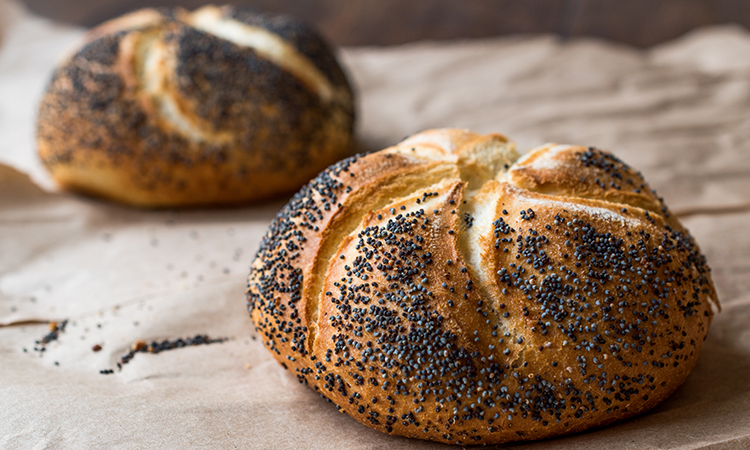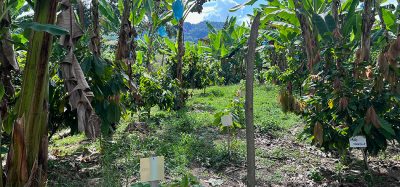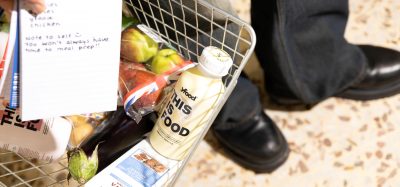Watchdog wants stricter poppy seed regulation in US
- Like
- Digg
- Del
- Tumblr
- VKontakte
- Buffer
- Love This
- Odnoklassniki
- Meneame
- Blogger
- Amazon
- Yahoo Mail
- Gmail
- AOL
- Newsvine
- HackerNews
- Evernote
- MySpace
- Mail.ru
- Viadeo
- Line
- Comments
- Yummly
- SMS
- Viber
- Telegram
- Subscribe
- Skype
- Facebook Messenger
- Kakao
- LiveJournal
- Yammer
- Edgar
- Fintel
- Mix
- Instapaper
- Copy Link
Posted: 9 February 2021 | Joshua Minchin (New Food) | No comments yet
The Center for Science in the Public Interest (CSPI) has filed a petition on behalf of families affected by contaminated poppy seeds, which calls for tighter monitoring of the trade within the US.


Poppy seeds are used to top bread rolls among other products, but are they safe for consumers?
The Center for Science in the Public Interest (CSPI) is urging the Food and Drug Administration (FDA) to better protect consumers from unprocessed poppy seeds, which it says are often contaminated with the plant’s naturally occurring opiate residues.
The non-profit nutrition and food safety watchdog group has filed a regulatory petition on behalf of six families injured by contaminated poppy seeds in conjunction with medical experts. It’s asking the FDA and other regulators to ‘clean up’ America’s poppy seed supply by setting a maximum threshold for opiate contamination and establishing controls on imported seeds.
Steve and Betty Hacala of Rogers, Arkansas, lost their 24-year-old son Stephen in 2016.
“It was hard for us to believe that something as innocent and common as poppy seeds could be lethal,” said Steve Hacala, one of the petitioners. “Now we want to make sure the poppy seeds brought into this country are cleaned, to spare other families this kind of loss.”
Poppy seeds used in baking come from the same plant that produces opiates, including morphine and codeine. The poppy plant which produces opium cannot be legally grown in the US, meaning all poppy seeds sold in this country are imported from countries where cultivation is permitted. While the seeds themselves contain negligible amounts of opiates, they can be contaminated with plant debris, and require washing and processing to reduce opiate contamination to safe levels.
However, the CSPI claims not all importers adequately process their seeds, and some sellers even market poppy seeds as “unwashed” or “unprocessed,” to convey that they have high levels of opiates to consumers who may purchase the seeds to brew poppy seed tea. This tea is typically used for medicinal, therapeutic, or recreational purposes, yet a batch of seeds can result in stronger, more concentrated opiates.
Consumers of these seeds may not be aware that the effects from the consumption of the seeds may be due to opiates. In addition, opiate contamination levels can vary widely between batches, which, according to the CSPI, puts those who drink the tea at increased risk of accidental overdose or other health consequences.
In fact, some signatories to the petition were shocked to find they tested positive for drugs after unwittingly consuming contaminated poppy seeds. Neither Elizabeth Dominguez of Tonawanda, New York, nor Jamie Silakowski of Depew, New York, used any opioids during their pregnancy, but both tested positive after eating baked goods with poppy seeds.
“I’m devastated that a simple poppy seed bagel could cause this much distress,” said Dominguez, who tested positive for opioids during routine drug testing given to mothers prior to delivery in some hospitals. The CSPI says she was temporarily separated from her newborn and visited at home multiple times by Child Protective Services because of the test triggered by poppy seeds.
The CSPI previously called on the FDA and the Drug Enforcement Agency to address the risks of contaminated poppy seeds in April 2019. In December 2019, the US Drug Enforcement Agency clarified that selling opiate-contaminated poppy seeds can be illegal under the Controlled Substances Act.
The petition follows the publication (last month) of a study co-authored by CSPI scientists in Clinical Toxicology, which suggests that adverse events from the consumption of opiate-contaminated poppy seeds may be on the rise.
Related topics
Food Safety, Health & Nutrition, Ingredients, Regulation & Legislation, The consumer








